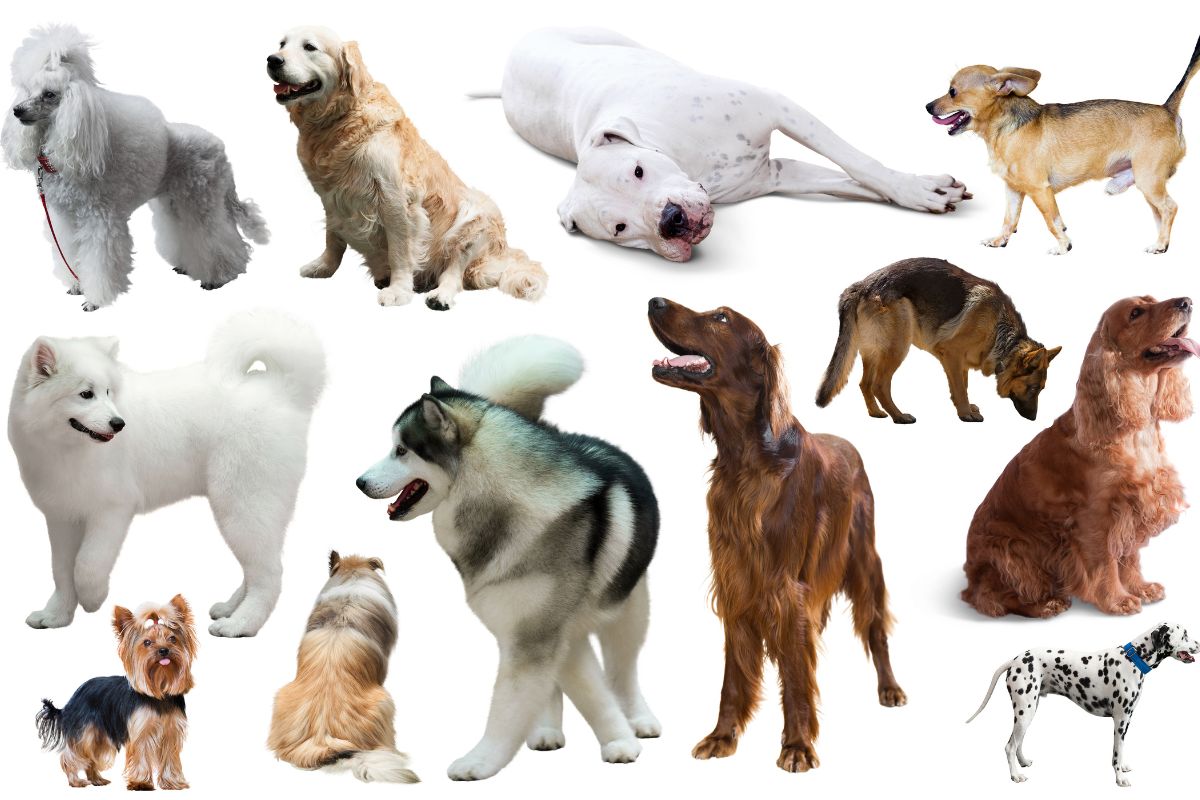Bringing a new pup into your life is an exciting decision, but it’s one that shouldn’t be taken lightly.
The dog you choose will be your constant companion for the next 10-15 years, so making the right choice is crucial.
To help you pick the perfect furry friend, we’ve put together the 4 key factors you absolutely must consider when choosing a dog.
Factor #1: Energy Level
Does your lifestyle involve hiking every weekend and daily runs?
Or are you more of a couch potato who prefers chilling at home binging Netflix?
Matching your dog’s energy level to your own activity preferences is hugely important for both of your happiness.
High-energy breeds like Border Collies, Australian Shepherds, and Labrador Retrievers need tons of vigorous exercise and mental stimulation to stay content.
Without at least a couple of hours per day dedicated to walking, running, playing fetch, or doing dog sports, these dogs can become destructive and develop behavioral issues.
Lower-energy pooches like Bulldogs, Cavalier King Charles Spaniels, and Basset Hounds make great apartment dogs for less active owners.
They’re happy with a daily walk around the block and lots of cuddling on the couch.
Factor #2: Grooming Needs
Some dogs were basically made for runways with their lush, gorgeous coats that require meticulous grooming.
Others have short, low-maintenance fur that rarely needs more than an occasional brushing.
Be honest about how much time, effort, and money you can dedicate to grooming before getting a high-maintenance breed.
Dogs like Poodles, Old English Sheepdogs, and Maltese have lush, dense coats that mat and tangle easily without regular professional grooming and daily brushing at home.
On the other hand, Greyhounds, Boxers, Beagles, and other short-haired breeds have simple grooming routines even busy owners can handle.
A quick weekly brushing and the occasional bath is all it takes to keep them looking their best.
Factor #3: Space Requirements
Tiny toy breeds like Yorkies and Chihuahuas can live happily in small spaces like apartments and condos.
But large and giant breeds absolutely need ample room to stretch their long legs and play.
If you live in a cramped studio apartment, steer clear of big dogs like Great Danes, Bernese Mountain Dogs, and St. Bernards that need tons of space.
They simply won’t be able to move around enough to stay physically and mentally healthy in tight quarters. Bored big dogs often become anxious and destructive.
Look for a more moderate breed between 30-60 lbs if you don’t have a house with a fenced yard. Good options include:
- French Bulldogs
- Cavalier King Charles Spaniels
- Boston Terriers
- Pugs
- Cocker Spaniels
Factor #4: Family Situation
Some breeds are gentle, patient souls that adore kids and get along beautifully with other pets.
Others have strong guarding instincts or don’t deal well with the constant noise and chaos of a houseful of children and animals.
If you have a bustling household full of kids, cats, and other dogs, look for an easygoing, affectionate family dog breed like:
- Pugs
- Bulldogs
- Golden Retrievers
- Labrador Retrievers
- Cavalier King Charles Spaniels
On the flip side, quieter homes with fewer kids and animals may be better suited to more territorial, reserved breeds like:
- Chow Chows
- Akitas
- Shar-Peis
- Afghan Hounds
- Salukis
Conclusion
At the end of the day, the “best” dog breed is the one that seamlessly fits into your unique lifestyle and living situation.
By carefully considering energy levels, grooming needs, space requirements, and family dynamics, you’ll end up with a loyal, loving companion you adore for years to come.
Don’t forget to share this post on Facebook to help other dog lovers make an informed decision when choosing their new furry BFF!
SHARE now with your friends!
- Hero Farm Dog Survives Epic Battle with Coyote Pack - December 9, 2024
- The 10-Minute Bedtime Routine That Changed My Dog’s Sleep Forever - November 29, 2024
- Creating a Safe Space for Nervous Pets: Your Guide to Pet-Friendly Havens - November 25, 2024

